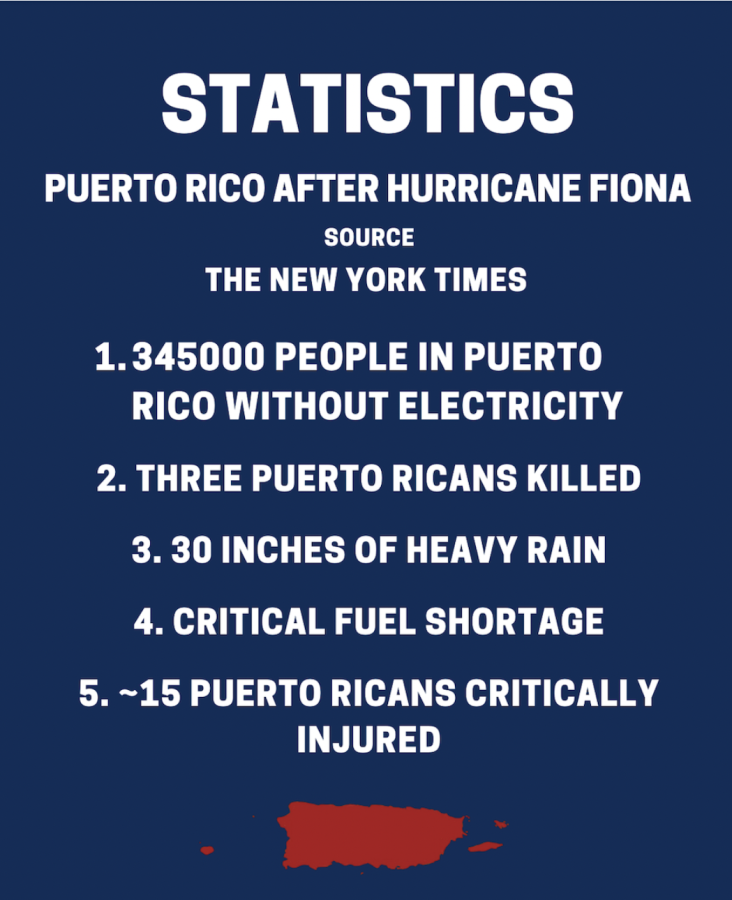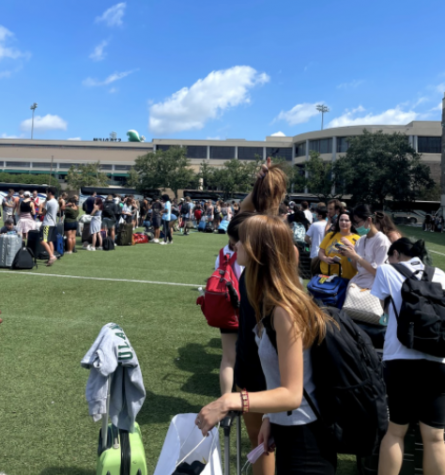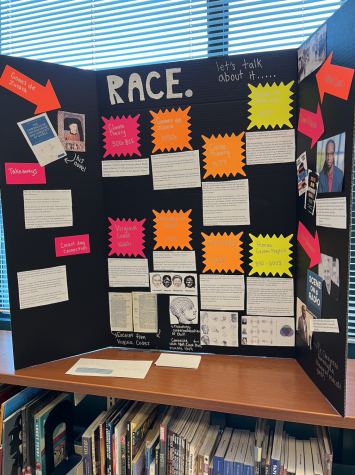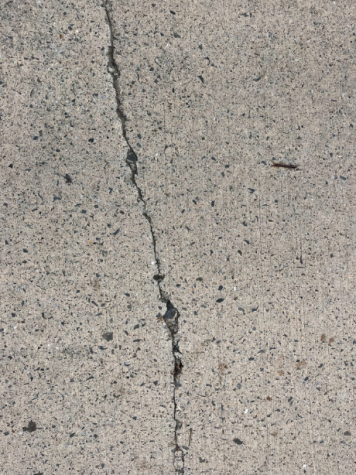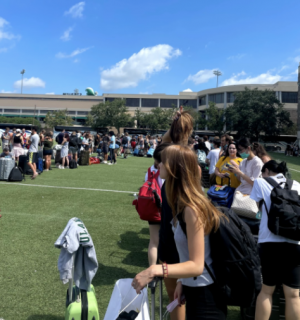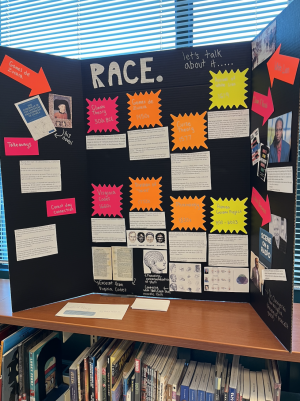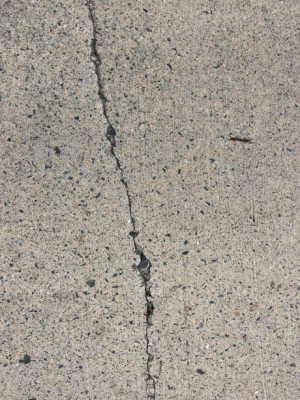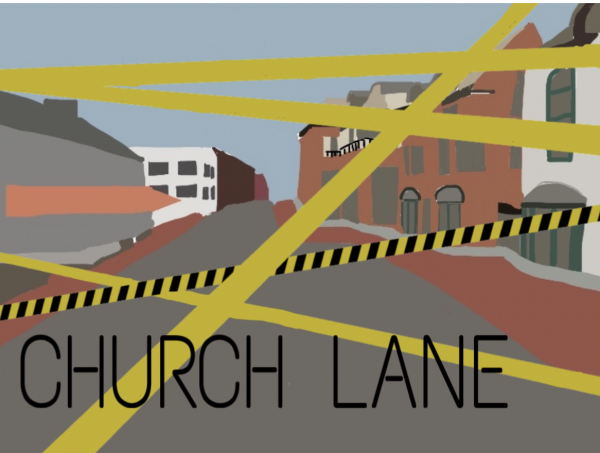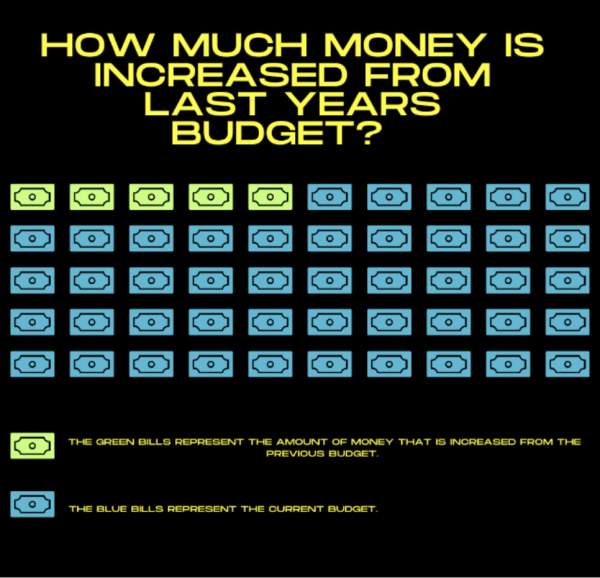Hurricane Fiona ravages an already crippled Puerto Rico
Hurricane Fiona has taken a heavy toll on the already battered Commonwealth, with many Americans instead focused on Hurricane Ian, which has devastated Florida.
About 200,000 Puerto Ricans are still left without power, as of Oct. 1, with many more residents possessing an unstable, limited energy supply. Hurricane Fiona, a category one storm, brought immense damage, with almost all of the island suffering power shortages.
For those from Puerto Rico, such as Lucas Fischel ’24, Hurricane Fiona has become a part of the long list of grave issues facing the territory.
“There is already a lot of poverty and suffering in Puerto Rico, it’s already quite bad there, this certainly doesn’t help it,” Fischel said. “Homes there without strong foundations can be destroyed by fierce winds from hurricanes, creating an immense homeless situation.”
Homes there without strong foundations can be destroyed by fierce winds from hurricanes, creating an immense homeless situation.
— Lucas Fischel ’24,
Since 2021, Puerto Rico’s hurricane restoration efforts have been placed in the hands of a private company, LUMA Energy. Before Hurricane Fiona, LUMA was still repairing damage from Hurricane Maria in 2017. Under LUMA, power outages have occurred in Puerto Rico even with typical weather, and Puerto Rico’s energy management has come under intense scrutiny.
“I would give us a B. Like, a seven out of 10,” LUMA CEO Wayne Stensby said to Congress when questioned about his company’s handling of Puerto Rico’s energy.
Puerto Rico’s power supply has gotten to the point where a sudden blackout interrupted the Governor of Puerto Rico’s press conference when he was describing the island’s preparations for power outages.
The task to restore the island’s power has been given to a small, young company, Whitefish Energy, which, at the beginning of Hurricane Fiona, possessed a website with a single page, simply featuring a helicopter and a phone number.
When Whitefish Energy was asked why such a small company was in charge of restoring power to three million people, a spokesman told The Economist that “the big guys weren’t jumping up and down to go to a bankrupt island.”











































